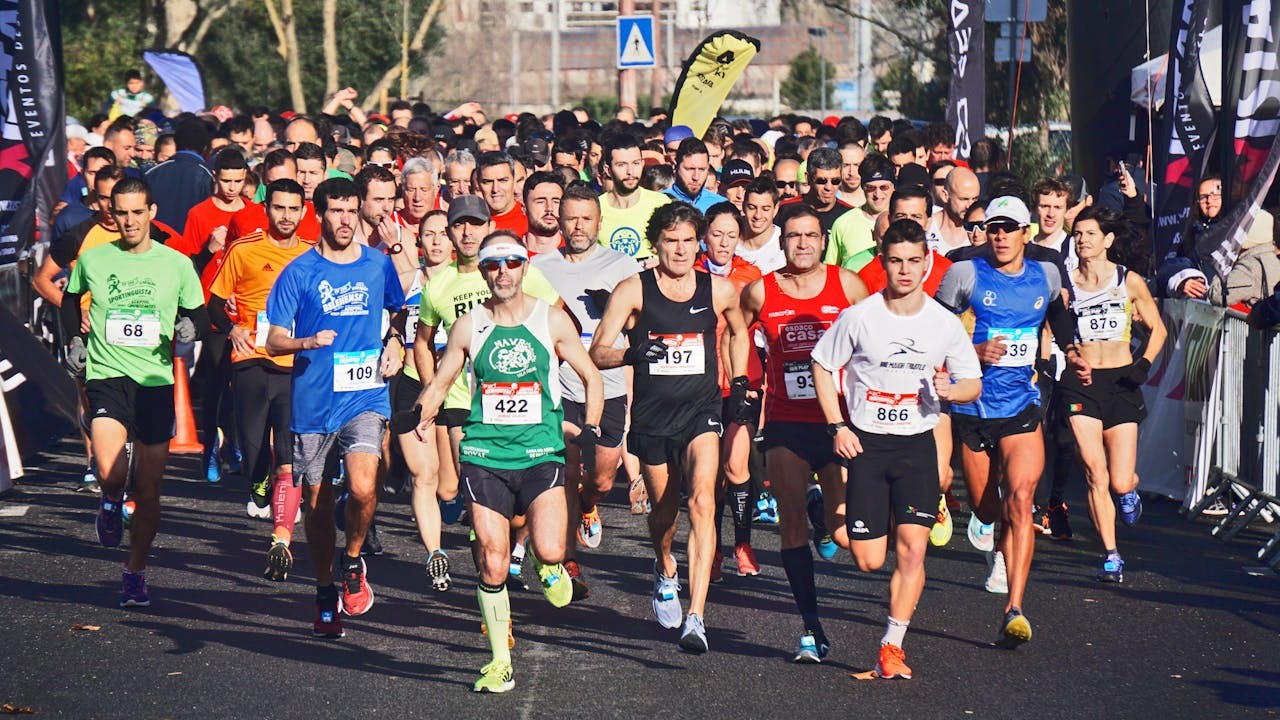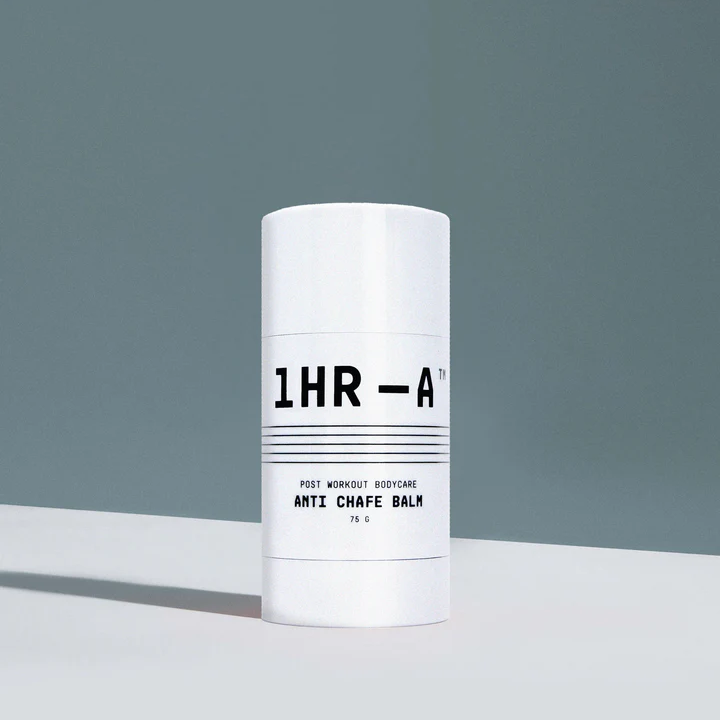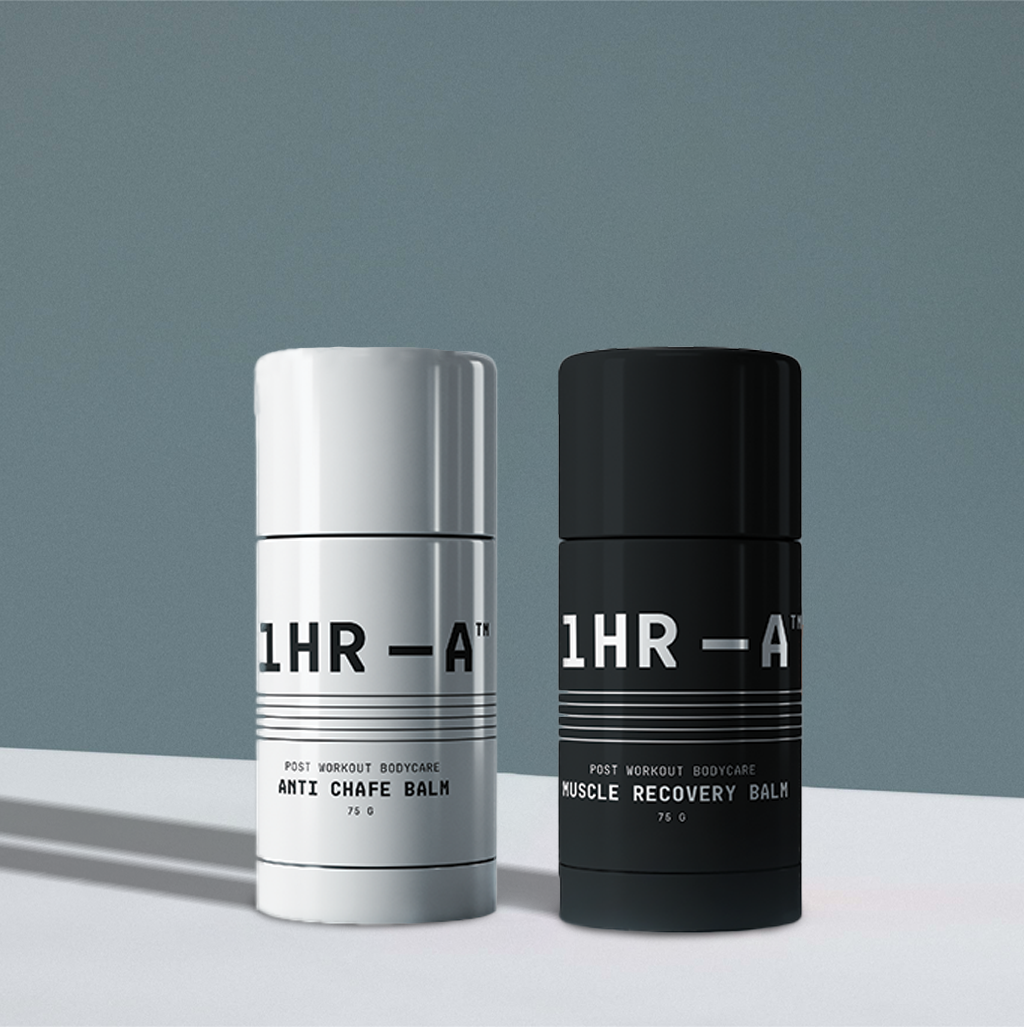
13.1 Miles Down, Now What? The Ultimate Half Marathon Recovery Timeline
Table of Contents
You trained for months, laced up for every long run, and pushed yourself through all 13.1 miles. You crossed the finish line - exhausted, proud, and probably a little sore. Now it’s time to celebrate your achievement. But what comes next?
Should you jump right back into running or give yourself time to recover?
Knowing how long half marathon recovery takes - and how to do it right - is just as important as your race training. Recovery isn’t just about putting your feet up. It’s about helping your body repair, rebuild, and return stronger.
In this half marathon recovery guide, we’ll break down:
Because recovery is more than just a nap, a Netflix binge, and a celebratory pizza (though those are absolutely encouraged!). It’s your next step toward becoming a smarter, stronger runner.
What Happens to Your Body After Running a Half Marathon?
Many runners ask, “What happens to your body after running a half marathon?” The answer involves much more than sore legs and tired feet. Running 13.1 miles is a major physical achievement, but it also puts your body through significant stress. While crossing the finish line feels like the end, it actually marks the beginning of a temporary breakdown phase. Here’s what’s happening beneath the surface:
1. Muscle Fiber Damage
The repeated impact, especially on downhill sections, creates microscopic tears in your muscle fibers. This leads to delayed-onset muscle soreness (DOMS), which typically peaks 24 to 72 hours after the race.
2. Dehydration and Electrolyte Loss
Running for over an hour causes you to sweat out essential electrolytes like sodium and potassium. Without proper replenishment, you may experience dizziness, fatigue, or mental fog.
3. Glycogen Depletion
Your muscles rely on stored glycogen for energy. By the end of the race, those reserves are likely exhausted, leaving you feeling drained and sluggish.
4. Inflammation and Immune Suppression
Inflammation is part of the natural healing process, but excessive levels can cause joint stiffness and swelling. Your immune system also takes a temporary dip, increasing your susceptibility to illness in the days after the race.

👉 That’s why recovery isn’t optional; it’s essential after every race.
There is No Single Marathon Recovery Timeline
The big question: How long does it take to recover from half marathon? While it varies for each runner, most runners’ bodies need 7–14 days for a complete physical and mental reset. Here’s a day-by-day recovery roadmap to help you bounce back smarter, not just faster.
Day 0 – Race Day
What’s happening:
You’ve just finished 13.1 miles. Adrenaline is high, but your muscles have endured microscopic damage. Hydration and gentle movement are key from the moment you cross the finish line.
What to do:
- Hydrate with water and electrolytes.
- Refuel within an hour with a carb-protein meal.
- Walk around for 10-20 minutes to cool down.
- Use menthol-based recovery products to reduce muscle tension and promote circulation.
Avoid:
-
Sitting still for hours. Your body needs gentle movement to flush out lactic acid.
- Ignoring signs of dizziness or cramping.
Day 1 – Recovery Begins
What to expect:
Fatigue, soreness, and the emotional rollercoaster of your post-race high.
What to do:
-
Take a short walk to keep blood circulating.
-
Prioritize hydration and balanced meals.
-
Use recovery tools like foam rollers or cooling lotions.
- Get quality sleep.
Avoid:
-
Going back to running too soon.
- Long periods of inactivity.
Days 2–3 – Peak Soreness (DOMS Zone)
What to expect:
This is when delayed onset muscle soreness (DOMS) hits hardest. You may feel stiff, tender, or even sluggish mentally.
What to do:
-
Embrace active recovery: walking, gentle yoga, or an easy swim.
-
Apply anti-inflammatory balms post-shower to relieve aches.
-
Eat anti-inflammatory foods: berries, leafy greens, salmon, nuts, and turmeric.
- Use cold baths or contrast showers to reduce swelling.
Avoid:
- Intense workouts or strength training.
- Holding static stretches for too long.
Days 4–7 – Active Recovery Phase
What to expect:
Your energy returns, soreness eases, and inflammation begins to settle. You may feel ready, but resist the urge to overdo it.
What to do:
-
Try low-impact movement like a light walk, cycling, swimming, or yoga.
-
Massage your muscles with a foam roller and stretch daily.
-
Take Epsom salt baths and use magnesium-based lotions to loosen tight spots.
- Stick to nutrient-dense, whole foods.
Optional:
If you're feeling good, you can test a short, easy run on Day 6 or 7, but keep it at a conversational pace.
Avoid:
-
Resuming speed intervals or long runs.
- Training on consecutive days.
Days 8–14 – Gradual Rebuild
What to expect:
You’re on the upswing. Most runners can reintroduce structured training at this stage, but it’s important to listen to your body.
What to do:
-
Add short, easy-paced runs (3-4 miles max).
-
Focus on mobility work and gentle strength training.
-
Maintain recovery habits: hydration, nutrition, and good sleep.
- Continue using recovery focused body care products.
Avoid:
-
Setting new PR goals or starting with hard workouts too early.
- Ignoring lingering fatigue or soreness.
Half Marathon Recovery Timeline
|
Day(s) |
What to Expect |
What to Do |
What to Avoid |
|
Day 0 |
Post-race high, adrenaline, and muscle fatigue |
Hydrate, eat a carb-protein meal, walk to cool down, use cooling balm like 1Hour After Muscle Recovery Balm |
Sitting for hours, skipping cooldown |
|
Day 1 |
Soreness, fatigue, possibly stiff joints |
Gentle walk, hydrate, nutrient-rich meals, sleep, foam rolling |
Running, long periods of sitting |
|
Days 2–3 |
Peak muscle soreness (DOMS), fatigue, stiffness |
Light activity (walk, yoga, swim), cold baths/showers, anti-inflammatory foods, magnesium or menthol-based lotions |
Intense exercise, static stretching |
|
Days 4–7 |
Reduced soreness, energy returning, and lingering tightness |
Try low-impact exercises (swim, yoga), short mobility work, foam rolling, Epsom salt baths, and magnesium-based lotions |
Speed training, strength workouts |
|
Days 8–14 |
Feeling normal again, but the body is still adapting |
Reintroduce short, easy runs, maintain good sleep, mobility work, hydration, and recovery-focused nutrition |
Consecutive hard training days, aiming for a new PR too soon |

Reminder: Recovery Isn’t One-Size-Fits-All
Some runners feel fresh after 4 days. Others need a full 2 weeks before resuming regular training. Your recovery depends on:
-
Your training base
-
Race effort (easy pace vs. all-out)
-
Age and fitness level
-
Nutrition, sleep, and stress levels
Pro tip: When in doubt, take the extra day off. Recovery isn’t lost time; it’s where the real adaptation happens.
A coach-approved recovery rule is to rest one day for every mile raced, roughly 13 days. That doesn’t mean no movement; it just means no hard workouts.
Real Runners, Real Recoveries: What Reddit Says
We even took the question to various running communities on Reddit, and the answers confirmed what most runners and coaches already say. There’s no one-size-fits-all recovery timeline after a half marathon. Some runners bounce back in 3-4 days, others take 10-14 days or longer before they’re ready to lace up again seriously. Many incorporate light runs, swimming, cycling, yoga, and walking as part of their active recovery.
Here are a few takeaways from the responses:
“It really depends on the individual. My first run after a marathon is 3 days later. But generally the weekend after, I’m feeling pretty good with no lingering soreness.”
— u/PaymentInside9021 (Marathon Veteran)“First marathon: 3-4 days to walk more normally, a week of light runs, 2-3 weeks before harder efforts, and 4-5 weeks to feel strong again.”
— u/EquivalentFishing“Day 3: restorative yoga. Day 5: super easy run. No quality sessions until 10-14 days post-race.”
— u/StreetLine8570“Depends on your preparation… my advice: no running the next day, just light stretching, biking, or swimming. That’s active recovery.”
— u/hmgr“For me, two days off completely, then some gym work and stretching. Walking, good sleep, and even CBD gummies help.”
— u/dustfirecentury
These answers reinforce one key point: listen to your body. No online plan or recovery calculator can replace personal experience and self-awareness. Take the time you need- three days or three weeks and don’t compare your timeline to someone else’s.
How to Speed Up Recovery After Running A Half Marathon (Without Rushing It)
While you can’t cheat recovery, you can definitely support your body through smart habits:
1. Sleep Like It’s Your Job
Your body repairs itself while you sleep. Aim for 8–9 hours during your recovery week.
2. Rehydrate and Rebuild
Your body loses tons of fluids and electrolytes during a race. Focus on:
-
Water and electrolyte drinks
-
Balanced meals with lean protein, complex carbs, and healthy fats
3. Use Recovery-Focused Body Care
A hot shower feels great, but a cooling body wash post-race can help reduce inflammation. Follow up with a hydrating magnesium body lotion and muscle recovery balm to calm tired legs.
Products specifically designed for post-race recovery can help target muscle fatigue and support faster healing.
4. Gentle Movement over No Movement
Walking, light stretching, and short cross-training sessions can keep blood flowing and prevent stiffness.
5. Listen to Your Body
No online plan or expert knows your body like you do. Take more time off if your legs still feel heavy a week later. Healing isn’t linear.

When to Seek Medical Attention
While soreness is normal after a half marathon, certain symptoms warrant professional attention:
- Sharp, localized pain that doesn't improve with rest
- Significant swelling in a specific area
- Pain that prevents you from putting weight on your leg
- Symptoms of dehydration that persist despite increased fluid intake
- Extreme fatigue lasting more than a week
- Signs of stress fracture (pain that worsens during activity and improves with rest)
Don't hesitate to consult a sports medicine doctor or physical therapist if you're concerned about an injury.
When Can You Start Running Again?
Notice we said running, not racing!
After an intense race, your body goes through a recovery process. That’s why the timeline depends on a few key factors:
-
Your fitness level before the race
-
How hard you pushed on race day
- Your overall health and injury history
A Basic Return-To-Running Plan:
-
Week 1: Focus only on active recovery - walking, yoga, or light cycling.
-
Week 2: Introduce easy 2–3 mile jogs, 2–3 times per week.
-
Week 3: Return to your regular training pace (but continue to avoid intense workouts).
- Week 4+: Gradually reintroduce speedwork or long runs, but only if your body feels fully recovered.
If you're planning your next race, make sure to build your schedule around your body’s signals and not just a calendar.
Common Post-Half Marathon Mistakes
Even seasoned runners sometimes rush the recovery process. Here’s what not to do:
-
Don’t jump into a training cycle too soon. Overtraining can lead to injury or burnout.
-
Don’t ignore small aches or pains. Minor niggles can turn into major issues if not addressed.
- Don’t skimp on nutrition and hydration. Recovery continues long after the race day, and your body needs fuel to heal.
Recovery Nutrition Tips
Your body needs specific nutrients to repair tissues and replenish energy stores after a half marathon:
- Immediately after finishing: Consume a 3:1 carb-to-protein ratio snack within 30 minutes (e.g., chocolate milk, banana with peanut butter)
- First 24 hours: Focus on rehydration with electrolytes and eating regular meals with quality protein
- Days 2-7: Emphasize anti-inflammatory foods like fatty fish, berries, leafy greens, and nuts
- Throughout recovery: Stay hydrated and maintain a balanced diet with adequate protein (0.5-0.7g per pound of body weight)
Proper nutrition can significantly accelerate your recovery timeline and help prevent the post-race energy crash many runners experience.
Mental Recovery Is Part of the Process
After months of training and the adrenaline of race day, it’s normal for runners to feel a bit lost. That post-race drop is real. Give yourself space to reset:
-
Reflect on what went well and what you’d like to improve.
-
Celebrate your effort, regardless of your finishing time.
-
Set new (realistic) goals to keep your motivation up.
And yes, enjoy a guilt-free week where running doesn’t need to be your top priority.
The Bottom Line on Half Marathon Recovery
So, how long does it take to recover from half marathon?
Most runners need 7–14 days for a full physical and mental reset. The key is to approach recovery as a continuation of your training, not a break from it.
Your legs just carried you over 13.1 miles. They deserve some serious care. Whether it’s a recovery jog, a well-earned nap, or a muscle recovery balm that makes your calves sigh with relief, remember: your next great run starts with how you treat your body today.
Ready to Support Your RECOVERY?
Invest in quality recovery products designed specifically for runners. Look for ingredients like menthol, magnesium, and arnica that help soothe tired muscles and support faster healing.
Remember that proper recovery isn't just about feeling better faster; it's about building a stronger foundation for your next running goal.
Have questions about your specific recovery needs? Contact us now, and our team will help you recommend products suitable for your post-race recovery journey.
- Choosing a selection results in a full page refresh.
- Press the space key then arrow keys to make a selection.






